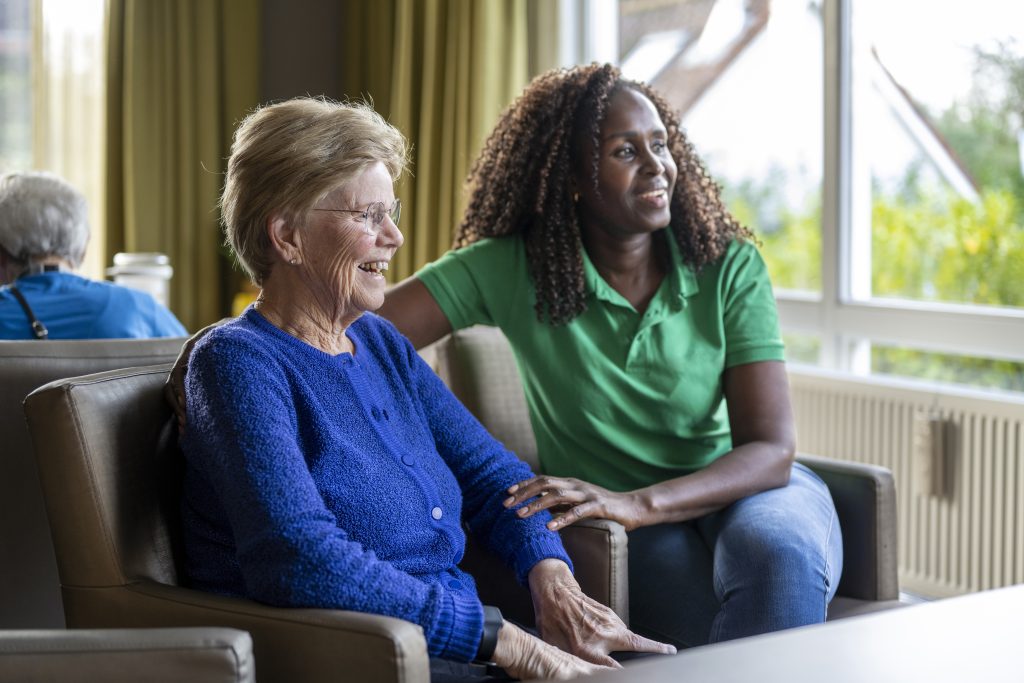Loneliness isn’t just an emotional ache—it’s a health risk. For many seniors, especially those living alone or far from family, social isolation can quietly chip away at their mental, emotional, and even physical well-being. What makes it more heartbreaking is that many older adults don’t voice their loneliness—they normalize it. But we can break that silence through one simple, compassionate solution: companion care.
Companion care isn’t about clinical routines or medical check-ins. It’s about presence, laughter, conversation, and the beautiful art of simply being there. In a world that often moves too fast for our elders, companion care slows things down and creates space for connection. Examining how this type of care is having a positive impact reveals its potential to restore joy and meaning to daily life.
Loneliness Isn’t Just Sad—It’s Dangerous
We often underestimate how devastating loneliness can be. It’s been linked to a 26% increase in mortality risk and significantly contributes to depression, cognitive decline, and weakened immune systems. Seniors, especially those who’ve lost spouses or friends, are particularly vulnerable. And yet, many hide their feelings behind polite smiles and quiet routines.
Companion care services address this hidden health hazard directly by offering something simple but transformative: a human connection. Through conversation, shared activities, and consistent visits, companions remind seniors that they are not alone—and that their stories still matter. With ongoing emotional support, seniors feel safe enough to share, and healing becomes possible. This kind of care fills a gap no pill or procedure can.
What Companion Care Really Looks Like
Many people think companion care just means “someone to talk to.” While that’s part of it, the reality is much richer. A companion might play cards with a senior who misses game night, help write holiday cards to faraway relatives, or even cook together using a cherished family recipe. These aren’t just tasks—they’re moments of purpose.
Companionship restores the human element to daily life. From meal companionship to walks in the park, every interaction is a chance for emotional connection. The best companion care at home doesn’t feel like a service—it feels like friendship. That sense of trust can reduce anxiety and boost self-esteem for seniors who may be battling emotional withdrawal.
Rediscovering Identity Through Connection
As people age, they sometimes lose more than mobility or memory—they lose pieces of their identity. A senior who once loved gardening may no longer have the energy for it, while a former teacher may not have an audience to share stories with. Over time, these unexpressed parts of self begin to fade, contributing to emotional withdrawal.
Companions help seniors reconnect with those lost pieces. They ask about passions, help bring old hobbies back to life, and listen with curiosity and patience. This simple act of being seen and heard can reignite confidence and restore self-worth in powerful ways. Reclaiming identity helps seniors stay connected to their past while building meaningful moments in the present.
More Than Conversation: The Power of Shared Rituals
Companion care isn’t only about chatting—it’s also about co-creating rhythms and rituals that give structure to the day. Think morning tea on the porch, Friday puzzle nights, or Sunday phone calls to a distant niece. These small rituals create emotional anchors, especially for seniors with memory loss or anxiety.
Establishing shared routines allows companions to give seniors something to anticipate. These comforting touchpoints provide not only companionship but consistency—something that becomes increasingly valuable with age. Repetition becomes familiarity, and familiarity becomes a sense of home. In that way, even the smallest moments become deeply meaningful.
The Emotional Weight of Silence (and How to Lighten It)
One of the most heartbreaking things about loneliness is that it doesn’t always look like sadness. Some seniors may laugh and smile but still go hours—or even days—without meaningful human interaction. Over time, the emotional weight of that silence builds. It creates an invisible heaviness.
Elderly companion care services can gently lift that weight. A visit once or twice a week can make all the difference. Seniors become more engaged, more willing to talk, and even more physically active when they know someone cares enough to show up and spend time with them.
Signs Your Loved One May Be Suffering in Silence
Loneliness doesn’t always announce itself. Here are subtle signs that your loved one might benefit from companion care services:
- Increased forgetfulness or confusion
- Changes in appetite or sleep patterns
- Lack of interest in previously loved hobbies
- Withdrawing from social or family activities
- Mood swings or emotional flatness
When these changes go unchecked, they can quickly spiral. Companion care provides a gentle, supportive intervention that helps before things get worse—creating a bridge back to connection and joy.
Breaking Generational Isolation Through Interpersonal Bonds
Many seniors today are part of the “silent generation”—known for their resilience, independence, and sometimes reluctance to ask for help. Unfortunately, that very strength can lead to emotional walls. Companion caregivers are uniquely trained to build trust, especially with seniors who don’t immediately open up.
Over time, these relationships create a ripple effect. Seniors often feel more open to reconnecting with estranged family or community. They smile more, talk more, and live more fully. That’s the true gift of companion care at home—not just emotional support, but emotional reconnection.
How Ace Home Care Brings Meaningful Companionship Home
At Ace Home Care, we believe no senior should feel forgotten. Our companion care services go far beyond “checking in.” We carefully match each client with a companion who shares their interests, pace, and communication style. The goal? Real, lasting connection.
Whether it’s chatting over coffee, organizing photo albums, or helping replant a favorite garden, our companions become part of your loved one’s life—not just part of their schedule. That’s the difference care makes when it’s built on heart, not just duty.
Loneliness Ends with One Hello
Loneliness doesn’t need a loud cry for help—just someone willing to say “hello” and stay awhile. Companion care is that “hello” turned into something lasting. It reminds seniors that they are not just being cared for—they are cherished.
If your loved one is struggling with isolation or quiet days that feel too long, Ace Home Care is here to help.
Reach out today to schedule a free consultation and discover how the right companion can bring warmth, joy, and connection back into your loved one’s life.



